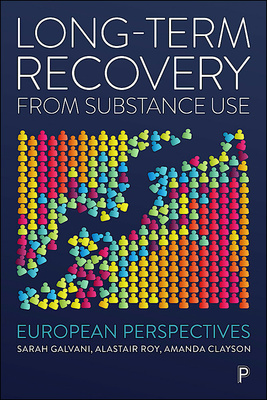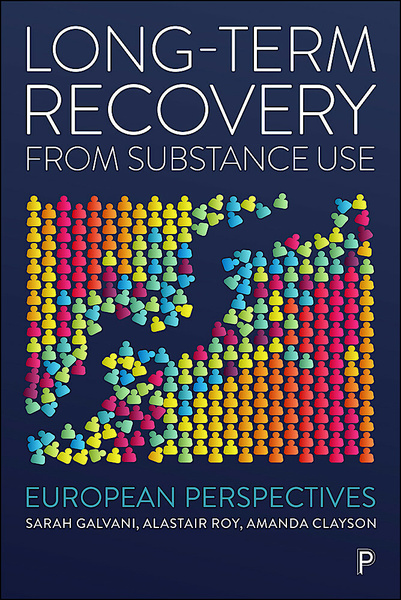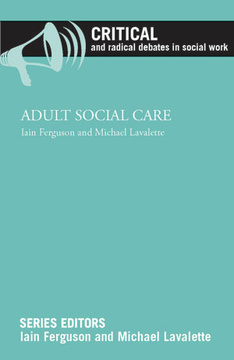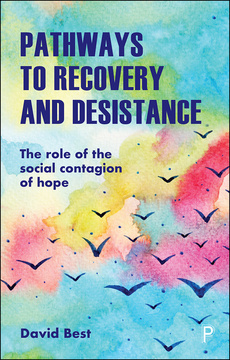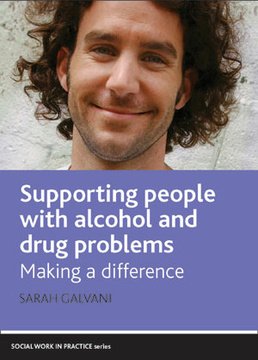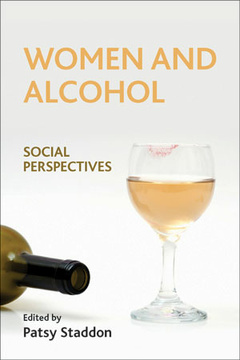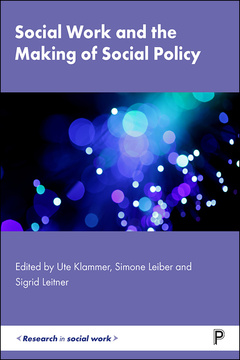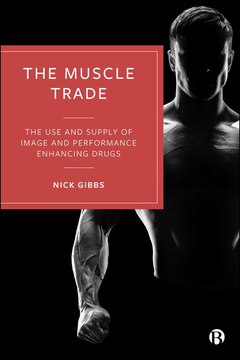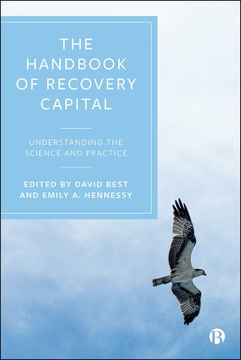Long-Term Recovery from Substance Use
European Perspectives
Edited by Sarah Galvani, Alastair Roy and Amanda Clayson
Published
Jan 14, 2022Page count
220 pagesISBN
978-1447358176Dimensions
234 x 156 mmImprint
Policy PressPublished
Jan 14, 2022Page count
220 pagesISBN
978-1447358169Dimensions
234 x 156 mmImprint
Policy PressPublished
Jan 14, 2022Page count
220 pagesISBN
978-1447358183Imprint
Policy PressPublished
Jan 14, 2022Page count
220 pagesISBN
978-1447358183Imprint
Policy PressIn this much-needed text, leading international experts explore crucial aspects of people’s experience of long-term recovery from substance use.
Centred around the voices of people who use substances, the book examines the complex and continuing needs of people who have sought to change their use of substances, investigating the ways in which personal characteristics and social and systemic factors intersect to influence the lives of people in long-term recovery. With perspectives from Sweden, Norway, Germany, Belgium, Iceland and the United Kingdom, it also considers the role and needs of family members, and puts forward clear recommendations for improving future research, policy and practice.
"This book will get you thinking. Drawing on research and experiences from different countries and different substances, it skilfully explores relationships, trauma and life stages presenting lived experiences of long-term recovery." Hilda Loughran, Associate Professor of Social Work/Social Policy at University College Dublin
“A particular strength of the book is the prominence it gives to the voices of experts by experience, either because their substance use has been problematic for them or because it has affected them as family members.” Jim Orford, University of Birmingham and King's College London
Sarah Galvani is Professor of Social Research and Substance Use at Manchester Metropolitan University. She has an international reputation for her research and practice development work. In particular, her early work around alcohol and domestic violence remains a significant contributor to the field of substance use research and theory development, as well as her subsequent work focussed on substance use in social work education and practice. Currently, her work focusses on research with groups of people using substances who are further marginalised. This has included work with particular ethnic communities, older people, and currently work on palliative and end of life care for people using substances. She has published over 100 outputs including peer reviewed articles, blogs, books, and book chapters.
Alastair Roy is Professor of Social Research in the School of Social Work, Care and Community at the University of Central Lancashire. With a professional background in youth and community work and residential social work, Alastair is an inter-disciplinary academic who has more than 20 years of experience in social research. Alastair has published a widely on issues around substance use research and policy, youth homelessness and mental health. He has undertaken research across the fields of social welfare, health and the cultural sector, writing widely about participatory, ethnographic, mobile, visual and biographical methods.
Amanda Clayson is the founder of VoiceBox Inc, an organisation grounded firmly in community networks, explicitly aimed at enhancing the influence and impact of lived experience across community, practice and policy arenas. Her work harnesses the power of digital and creative media as vehicles for connection, capturing and communication of authentic voice. She is a long term Community Research Partner with Manchester Metropolitan University.
Part 1: Critical explorations of long-term recovery
1. Recovery as long term: an introduction ~ Alastair Roy, Sarah Galvani and Amanda Clayson
2. Is measuring long-term recovery desirable, necessary or even possible? ~ Wulf Livingston
3. Telling recovery stories: an exploration of the relationship between policy, practice and lived experience ~ Alastair Roy and Jennifer Christensen
4. Change processes in long-term recovery for individuals with present and former substance-use dependence ~ Thomas Solgaard Svendsen
5. Provider and user perspectives on long-term recovery in England: how do we know when we are done? ~ Maike Klein and John Hill
Part 2: Intimate relationships, trauma and long-term recovery
6. Women’s and men’s stories about sex and intimate relationships in long-term recovery from problematic drug use ~ Anette Skårner and Bengt Svensson
7. Multiple recoveries: substance use and trauma ~ Sarah Fox and Karin Berg
8. Being a partner in long-term recovery: stories from female partners in Norway ~ Sari Lindeman and Lillian Bruland Selseng
9. Long-term recovery for the ‘adult children’ of parents who use alcohol in Iceland ~ Jóna Ólafsdóttir and Amanda Clayson
Part 3: Diversity across the lifespan in long-term recovery
10. Social and structural issues in recovery among migrants and ethnic minorities: an exploration of cultural competence and individual recovery perspectives ~ Charlotte De Kock and Aline Pouille
11. Transitions in long-term recovery: mapping adolescent development theory to better understand identity change in recovery ~ Lucy Webb, Amanda Clayson and Nigel Cox
12. Care, continuity and change in long-term recovery: the experiences of older opioid users in long-term recovery in three German regions ~ Ines Arendt
13. When long-term recovery isn’t an option: people at the end of life ~ Sam Wright and Gemma Yarwood
14. Conclusion: Critical reflections, theories and key messages ~ Sarah Galvani, Alastair Roy and Amanda Clayson







